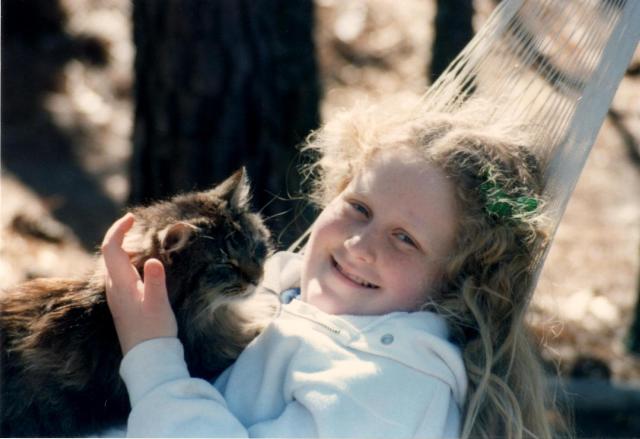Guest Post by Suzan Hutchinson
Do you remember being seven years old? Engage your imagination for a few minutes and try re-entering your seven-year-old world. Remember what fun life was. Recall what grade you were in, and what you enjoyed about school. Reconnect with your friends and with a few special memories.
Menarche is not a word in a seven-year-old’s vocabulary, but there are girls who experience their first menstrual periods at age seven or even younger as a result of precocious puberty. Leaving aside the multiple medical causes of such early onset, let’s focus on how this pubertal milestone differs for those among us who experience precocious puberty. While no two experiences are identical, some of the common realities include:
- Discovering blood on your underclothing or on toilet paper, then, at best, not being able to figure out why you are bleeding since you did not cut or hurt yourself, or, at worst, being scared you are bleeding to death
- Having adults treat you differently from your peers, sometimes because they know you are menstruating, other times because they expect you to be able to do things a much older child would do because physically your body appears older than its chronological age
- Learning new hygiene habits, like how to wear, change, and dispose of pads (nearly all girls who start this young begin exclusively with pads or a combination of pads and liners)
- Navigating a world that doesn’t account for seven-year-olds who are menstruating, including schools that don’t accommodate children who might need to carry purses or other items into the bathroom, or provide bins in bathroom stalls for disposing of used products
- Feeling isolated and alone with parents and other adults constantly telling you what to do, when, and how, while also being reminded that it is private and that you cannot tell your friends about your bleeding
This is challenging enough, but it is only the tip of an iceberg. While there are some helpful resources for parents to help their daughters with these practical issues related to menstruation, there are no easy answers to managing the moodiness or easing the emotional edges while dealing with other hormonally driven changes.
Because of these and other challenges, some families choose medical intervention to halt pubertal progression and suppress menstruation until their daughter is older. This response is also the default with preschool-aged girls and an option for any girl who is diagnosed with precocious puberty.
For those families that do not intervene, menarche will be her first of many childhood menstrual periods. In most cases these girls menstruate for several years before they can comfortably confide in peers who are then experiencing their own menarches.
Whether or not your family is ever directly impacted by precocious puberty, it is important that you have a general awareness. Here are some key facts about menarche in the United States:
- For girls, puberty starts well before menarche. For most girls the onset of puberty is first evidenced by the development of breast buds (pubic hair appears first for the rest). If your daughter has breast buds before age seven, pubic hair before age eight, or menarche before age 10, then it is worth discussing this early development with her pediatrician and, quite likely, she receive a referral to a pediatric endocrinologist for further evaluation.
- It is also important to know that normal puberty starts in girls at a younger age than most parents expect. Today, more than 1 in 7 (15%) American girls start puberty at age seven, and that number climbs to more than 1 in 4 (28%) by age eight. And while the average age of pubertal onset continues a decades-long decline, the average age for menarche has been much more stable. Today the average African-American girl will start puberty at age eight years, nine months; the average Hispanic girl at age nine years, three months; and the average Asian American or Caucasian girl at nine years eight months. Among all girls, the average age for menarche is now around 12 years, six months.
Do you remember much about second grade? Whatever you remember, remember that girls with precocious puberty often have some rather grown-up memories by the time they are in the second grade.
Suzan Hutchinson, a menstrual educator, coach and activist, is the founder of Period Wise. She works for Lunette and has held multiple volunteer roles with the Toxic Shock Syndrome Awareness non-profit organization You ARE Loved. Follow Suzan on Twitter @periodwise and like PeriodWise on Facebook.


